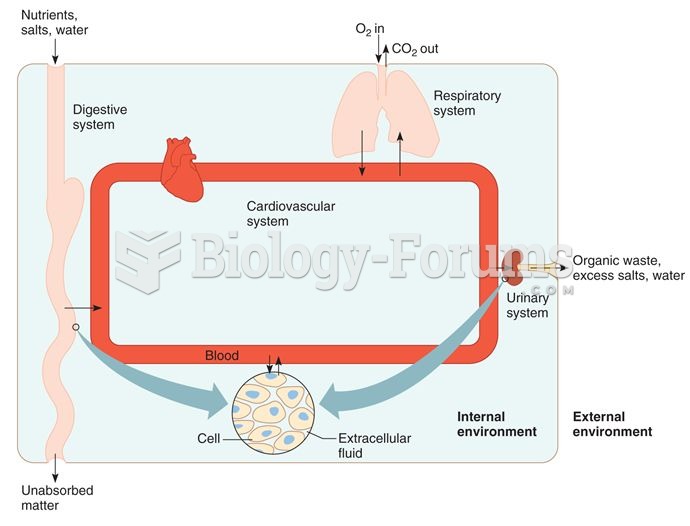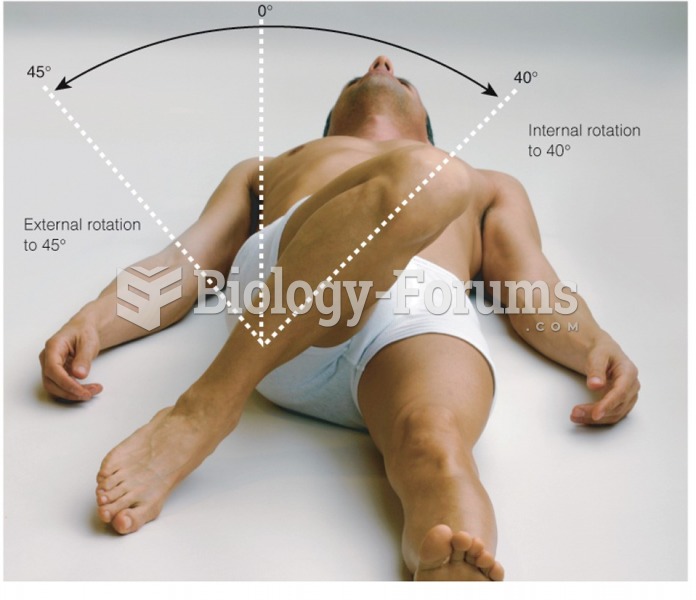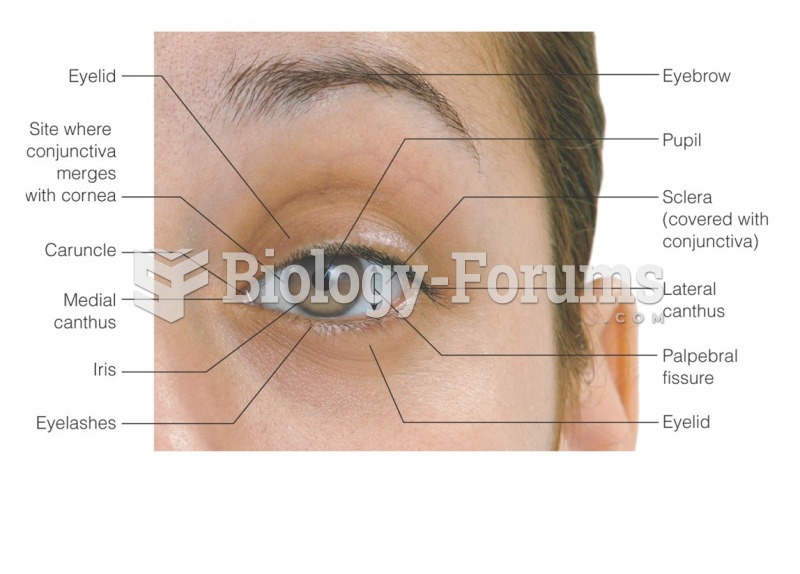|
|
|
Once thought to have neurofibromatosis, Joseph Merrick (also known as "the elephant man") is now, in retrospect, thought by clinical experts to have had Proteus syndrome. This endocrine disease causes continued and abnormal growth of the bones, muscles, skin, and so on and can become completely debilitating with severe deformities occurring anywhere on the body.
There are more nerve cells in one human brain than there are stars in the Milky Way.
When blood is exposed to air, it clots. Heparin allows the blood to come in direct contact with air without clotting.
Each year in the United States, there are approximately six million pregnancies. This means that at any one time, about 4% of women in the United States are pregnant.
It is difficult to obtain enough calcium without consuming milk or other dairy foods.







